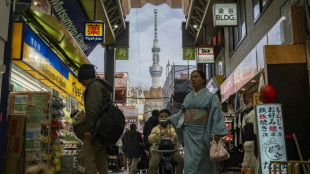
-
 Brazil president leads final farewell to Uruguay's Mujica
Brazil president leads final farewell to Uruguay's Mujica
-
Gaza strikes kill 120 as Hamas says aid entry 'minimum requirement' for talks
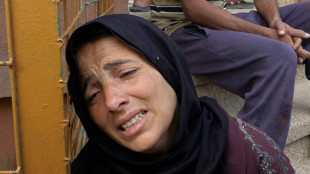
-
 Donald edges Bradley as Ryder Cup captains contend at PGA
Donald edges Bradley as Ryder Cup captains contend at PGA
-
Eurovision semi starts with milkshake and space odyssey

-
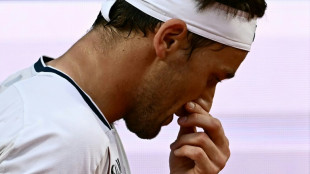 Ruud mesmerised by 'next level' Sinner in Rome destruction
Ruud mesmerised by 'next level' Sinner in Rome destruction
-
Coinbase expects data breach to cost it up to $400 mn

-
 Eagle chip helps Gerard grabs PGA Championship lead with 66
Eagle chip helps Gerard grabs PGA Championship lead with 66
-
England great Anderson set for Lancashire return
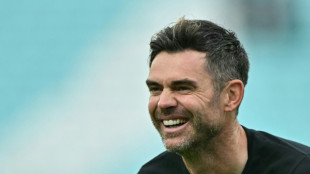
-
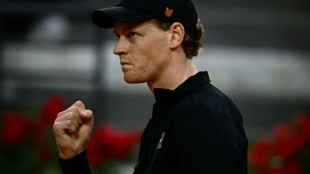 Sinner sends message by demolishing Ruud to reach Italian Open semis
Sinner sends message by demolishing Ruud to reach Italian Open semis
-
Rubio says no high expectations for Ukraine-Russia talks in Turkey
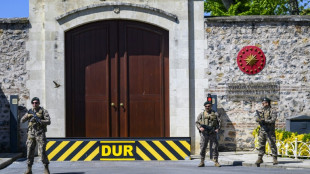
-
 NFL owners to vote on allowing players at 2028 Olympics
NFL owners to vote on allowing players at 2028 Olympics
-
Sinner demolishes Ruud to reach Italian Open semi-finals
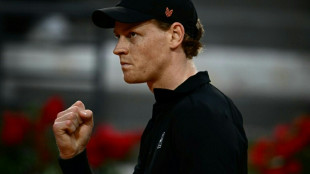
-
 Rashford to miss final two games of Aston Villa's season
Rashford to miss final two games of Aston Villa's season
-
70 South African white rhinos to be relocated to Rwanda
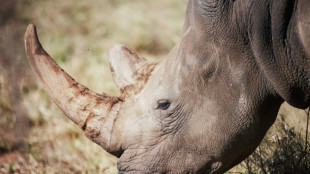
-
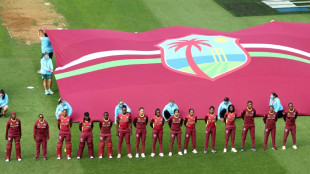 West Indies issue LA 2028 Olympic cricket plea
West Indies issue LA 2028 Olympic cricket plea
-
Gaza strikes kill over 100 as Hamas says aid entry 'minimum requirement' for talks
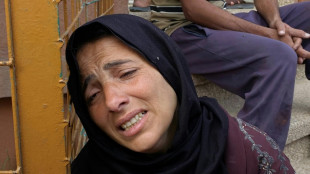
-
 Nantes striker Mohamed fined for sitting out game marking anti-homophobia campaign
Nantes striker Mohamed fined for sitting out game marking anti-homophobia campaign
-
Hamilton admits he underestimated Ferrari challenge

-
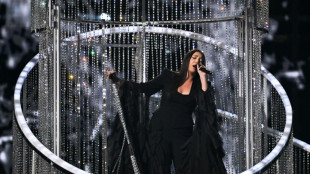 Israel in Eurovision spotlight at second semi-final
Israel in Eurovision spotlight at second semi-final
-
England's Donald shares PGA Championship lead with 67

-
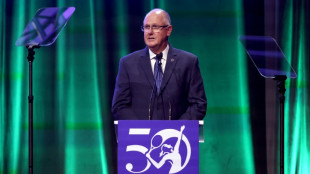 WTA president Simon to step down in December
WTA president Simon to step down in December
-
Antonelli draws on Hamilton's heart-warming message for inspiration

-
 South African rugby mourns death of Cornal Hendricks at 37
South African rugby mourns death of Cornal Hendricks at 37
-
Cool Piastri plays down prospects of more McLaren domination

-
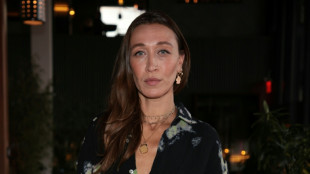 Hadid sister helps launch Palestinian film streaming site
Hadid sister helps launch Palestinian film streaming site
-
Groves wins neutralised Giro sixth stage, former winner Hindley abandons

-
 Knight eager to be 'one of the girls' under new England captain Sciver-Brunt
Knight eager to be 'one of the girls' under new England captain Sciver-Brunt
-
Ukraine sends team for Russia talks, downplays expectations

-
 Paolini delights home crowd by reaching 'dream' Italian Open final
Paolini delights home crowd by reaching 'dream' Italian Open final
-
Guyana says soldiers attacked in disputed border region with Venezuela
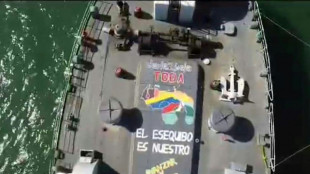
-
 Paolini delights home crowd by reaching Italian Open final
Paolini delights home crowd by reaching Italian Open final
-
Combs's ex Cassie faces intense cross-examination

-
 US set to lose $12.5 bn in foreign tourism in 2025: industry
US set to lose $12.5 bn in foreign tourism in 2025: industry
-
Ex-Olympic swim champion Agnel to go on trial over rape allegations
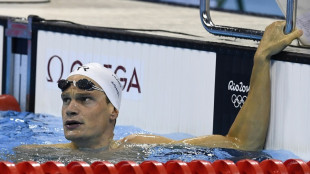
-
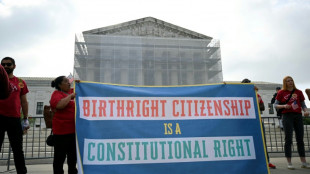 US Supreme Court weighs judicial checks on Trump with birthright case
US Supreme Court weighs judicial checks on Trump with birthright case
-
English trio among early contenders at PGA Championship

-
 US retail sales little changed, signs of pullback after pre-tariff rush
US retail sales little changed, signs of pullback after pre-tariff rush
-
NATO on track to strike spending deal to please Trump
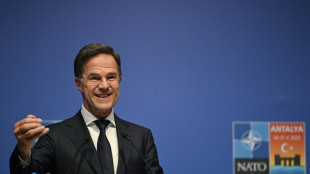
-
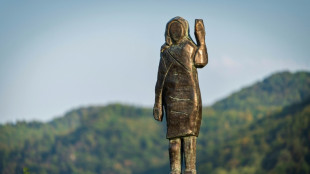 Slovenia probes disappearance of latest Melania Trump statue
Slovenia probes disappearance of latest Melania Trump statue
-
Amorim urges Man Utd to focus on Chelsea, not Europa League final
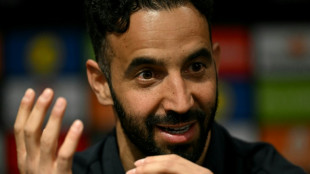
-
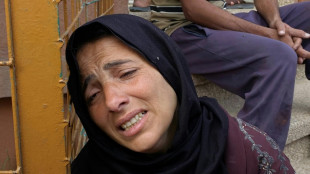 Gaza air strikes kill over 100 as manhunt unfolds in West Bank
Gaza air strikes kill over 100 as manhunt unfolds in West Bank
-
US Fed chair warns of potential for 'more persistent' supply shocks

-
 Walmart warns of higher prices due to tariffs
Walmart warns of higher prices due to tariffs
-
Paul reaches Italian Open semis ahead of Sinner's clash with Ruud
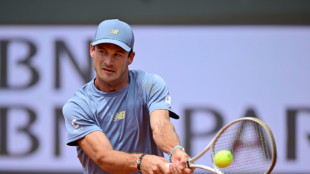
-
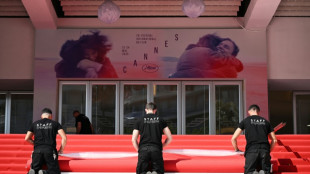 New Cannes Festival policy bans actor accused of rape
New Cannes Festival policy bans actor accused of rape
-
Tottenham's Kulusevski out for the season as Son steps up recovery

-
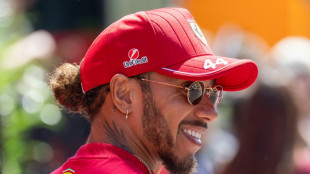 Leclerc absent as under par Ferrari face home race
Leclerc absent as under par Ferrari face home race
-
Rome businesses count their blessings with US pope
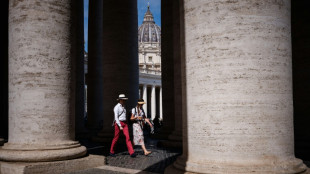
-
 World's top three launch early charge at PGA Championship
World's top three launch early charge at PGA Championship
-
Maresca 'happy' with pressure of Champions League challenge


'Fire of Love' charts romance and death of volcano-chasing scientists
French scientists Maurice and Katia Krafft were brought together, and eventually killed, by their shared love of volcanoes.
Now the married couple are the subject of "Fire of Love," a new film constructed from hours of dazzling, terrifying and occasionally quirky footage they shot close to -- and even inside -- erupting craters.
Playing in a limited number of US theaters, the documentary from National Geographic and prestigious indie distributor Neon ("Parasite") is earning rave reviews and generating early awards buzz.
Director Sara Dosa first stumbled upon the pair's "spectacular imagery" while researching another documentary about Icelandic volcanoes -- but was drawn more to the "love that just radiates behind the lens, unlike anything else."
For 25 years, the Kraffts had traveled the world together in search of active volcanoes, writing some 20 books and making five feature films, plus countless television programs and lectures.
But they are perhaps best remembered today for their deaths side-by-side on Japan's Mount Unzen volcano, which erupted in 1991 after nearly two centuries dormant, sending a fatal cloud of gas and ash surging down its eastern flank.
"Fire of Love" begins and ends with this tragic information -- yet it spends the bulk of its running time on the "love triangle" between the couple and their lifelong obsession.
"Once we really learned about them as people... and the fact that they were married and also seemed to be in love with volcanoes -- that's when we thought, 'okay, we want to make a film of these people,'" Dosa told AFP.
"We wanted to tell kind of a mythic love story that was told through the language of volcanoes," she added.
"That's what drew them together in the first place, and that was the propulsive material, the fuel of their relationship."
- 'Reckless love' -
While Maurice was the more extroverted and ostensibly thrill-seeking of the pair -- he paddles in an acid lake and plots to kayak down an active lava stream -- Katia was similarly courageous in the face of peril.
Their gung-ho approach drew criticism from some of their scientific peers, but "I don't think that we ever found them reckless, quite honestly," said Dosa.
"They ultimately did lead a deeply meaningful life and die a meaningful death. And so much of that was this pursuit of love," she added.
"I'm sure many people will say perhaps it was a reckless love, but for us, it was the way for them to live."
After witnessing the staggering 1980 eruption of Mount St Helens in the northwestern United States, and the Nevado del Ruiz disaster that killed up to 25,000 Colombians five years later, the pair reoriented their work to lobby governments for better evacuation planning.
"Since they were some of the only people really capturing those images, they were uniquely suited to do that advocacy work," said Dosa.
"And that is literally what they were trying to do as they died on mountains in 1991."
- 'Salve' -
Aside from informing modern audiences about the pair's work, Dosa hopes the film can remind viewers that the planet is not simply "a resource to be capitalized upon."
"These kinds of stories about the aliveness, the sentience of the Earth, are all the more important to counteract the exploitation," she said.
Making the film during the pandemic and "having these guides, Katia and Maurice, teaching you how to navigate the unknown, and who knew how to reconcile fear -- that was such a salve and a refuge for us."
And then there is the aesthetic beauty of the footage itself, full of glowing red lava and alien-looking volcanic landscapes, all captured in a distinctive style with "the hallmarks of the French New Wave."
"For example, in the cinematography, there was a lot of playful snap zooms, which reminded us of films in France from the 60s and 70s," she said.
"And their own writing -- they authored nearly 20 books -- almost recalled the bombastic and playful spirit of narration in Truffaut films."
Dosa herself drew on that style, including the documentary's own, breathy narration.
"One of the great narrative devices of the French New Wave was love triangle stories," said Dosa.
"And for us, that was something that felt appropriate. Katia and Maurice truly did seem to have a third in their relationship -- volcanoes."
F.Dubois--AMWN
